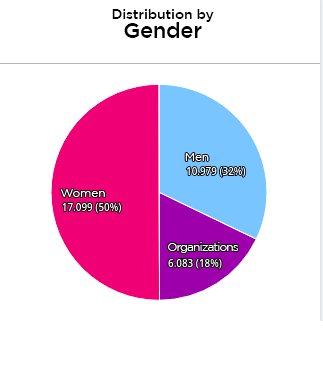

ECCO Brazil | ADS Communicacao Corporativa works for STILINGUE, the leading Brasilian Artificial Intelligence (AI) platform for the Portuguese language (PT-BR). On International Women’s Day the company conducted a survey that provides an overview of the challenges and advances made by women in the labour market. More than 390.000 posts were collected on social networks (Facebook, Twitter, Instagram, blogs, news and comment the analysis was centred around terms such as women, employment and the labour market.
 Mostly women talk about women
Mostly women talk about women
Topics that refer to women are also discussed by them: women dominate the discussions on the labour market and women in the networks, with 50% of the content coming from female profiles. Men, who represent 75% of the workforce in Brazil, are responsible for a third of the public that speaks about the subject on the networks.

Women are more engaged with social issues

Unemployment continues worry Brazilians in 2020. Women are concerned about maternity leave
With 11.6 million unemployed, men and women are concerned about the possibility of losing their jobs – there are also those who fear that they will not make it to the labour market. In this scenario, women are still the ones who suffer most.
An aggravating factor contributing to unemployment among women is the difficulty in returning to the market after maternity leave. According to the research “Maternity leave and its consequences on the job market in Brazil”, conducted by the Getúlio Vargas Foundation (FGV), half of the women who had children are disconnected from work upon returning.
In the chart, the terms “unemployment” and “maternity leave” stand out, thus showing the relationship between them. In this sample, when we zoom in on the term “unemployment”, besides publications that cite the difficulties of women returning to the market after maternity, another subject that correlates with the subject gains notoriety: the expansion of the maternity leave period.
In summary: the data point to a movement of change in the reality of women in the labour market and technology. Even if there is still a disparity between types of employment performed by men and women, it tends to decrease over time, as recorded in recent years.
Access to the ECCO Global Communications Network is simple. Contact information for a specific geography is available on the agency overview pages accessed here or contact the ECCO Global Communications office via email info@ecco-network.com.